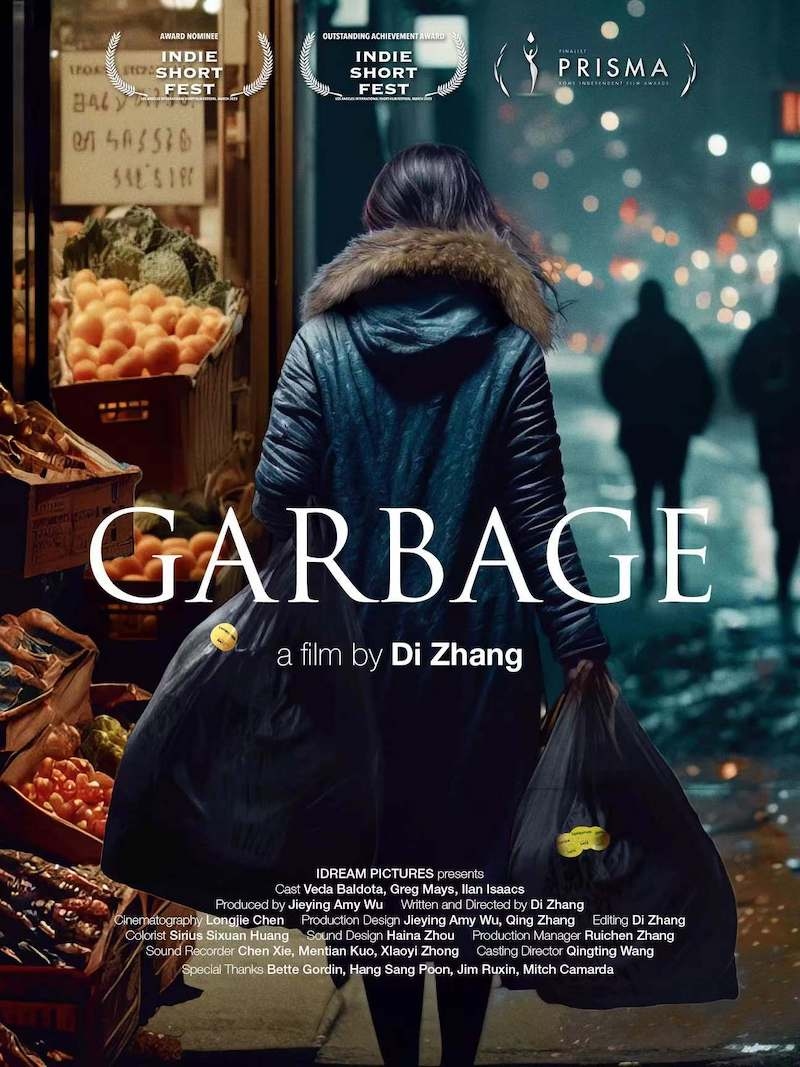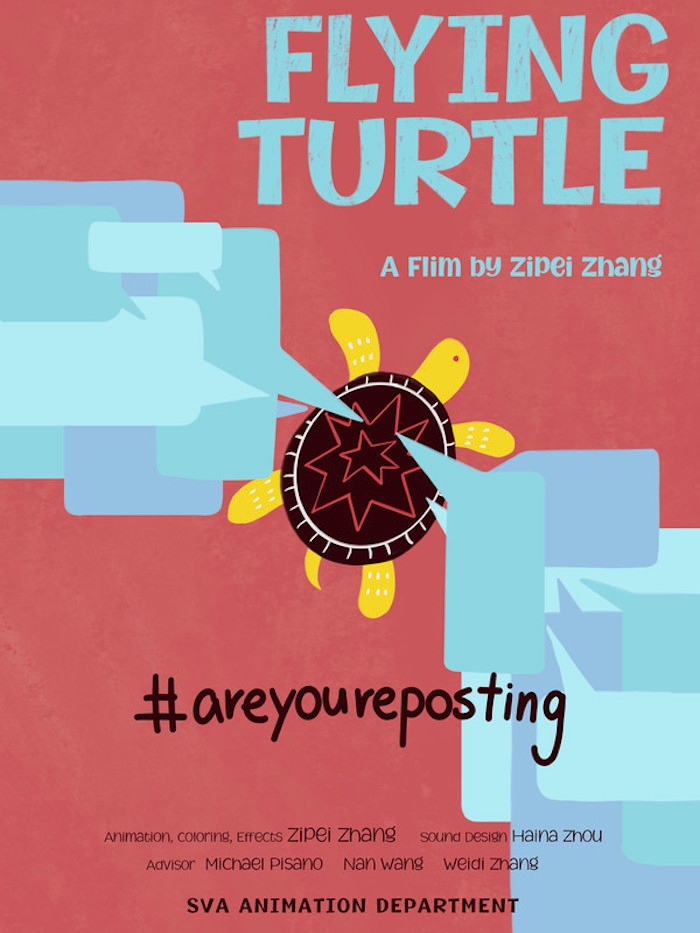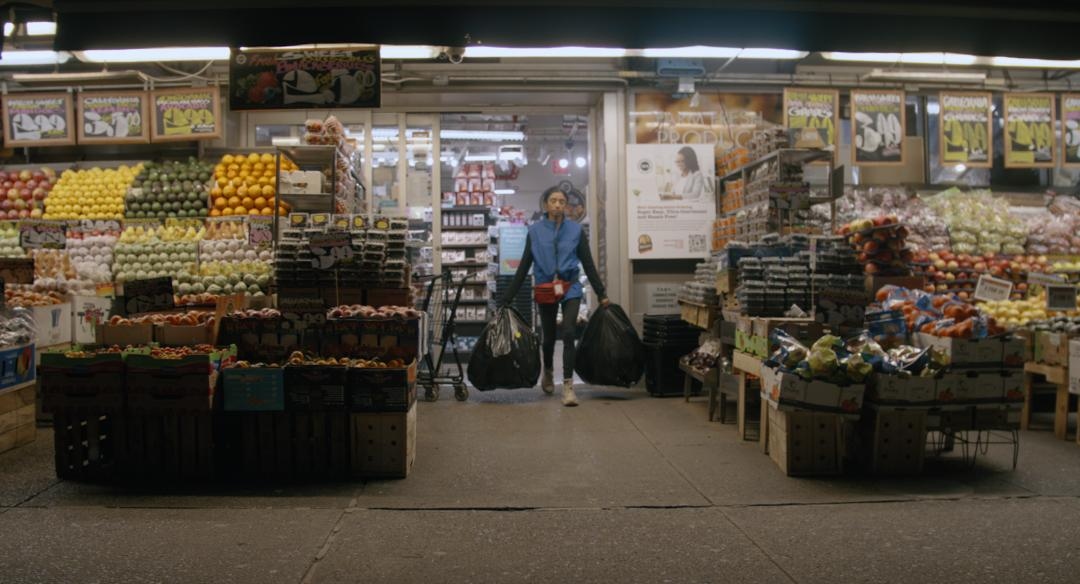“What makes Haina Zhou an exceptional sound designer is that not only does she possess strong technical capabilities and communication skills, she also has great empathy for the story. With all these qualities combined, she’s able to put creative thoughts into fruition which I truly admire.”—Ana Yang, director of award-winning film, One for Sorrow, Two for Joy (2022)
Having worked on dozens of films, working closely with directors, sound engineer Haina Zhou sees her work very clearly, explaining, “I often see myself as a translator and mediator. My job is to facilitate the director to translate their vision into sound. Aside from technical knowledge, I believe that good communication and comprehension skills is what I find most important, guiding the directors through asking the right questions and assisting the director in externalizing their concepts through technical sound vocabularies.”

Indeed, as an always in-demand sound engineer, and also a re-recording mixer, Haina Zhou is happy to have worked on numerous filmed projects that have earned various honors and awards, including: Garbage (2023) which was selected to Micheaux Film Festival, and won the Indie Short Fest, and Independent Shorts awards; she also worked as a re-recording mixer on movies that have been selected to Oscar Qualifying Festivals including I Want to Become the Sky (2023) and Artificial Flowers (2022); and, another short movie that was the Best Short in the Austin Film Festival and a Final Selection for the Cannes Indie Short.
And, yet another short, the lovely animated film, Flying Turtle (2021) won Best Animation Shot in the London International Short Film Festival.

But, what does doing sound for a movie actually entail and mean? Born in China, Haina, who has a BFA in Film & TV Production from New York University, suggests, “Sound for film is everything you hear in the theater aside from the music. Therefore, it’s fundamental yet often goes unnoticed—so, we often call it an ‘invisible art.’ But, to achieve the purpose of being invisible and effective at the same time, it has to take into consideration human psychology and objectiveness while incorporating subtle and unspeakable nuances that subconsciously influence the viewers.”
“When I’m composing for films, I’m fulfilling someone else’s vision. The way that Tarkovsky used the sound of water, not just water, but also wind or footsteps, added rich auditory texture. He had a profound love and reverence for the sound of things.”—legendary Oscar and Grammy-winning composer Ryuichi Sakamoto
Haina draws her inspiration for creating sound design from Nature, explaining, “Ryuichi Sakamoto has a great influence on how I approach sound. When I watched the documentary Ryuichi Sakamoto: Coda, I was deeply inspired by his fascination with natural sounds, incorporating sounds he recorded in natural environments into his music. There is an instance when he uses plastic bins, puts them under the rain, and listens to the rain splashing on the plastic. That process inspires me.”

Apart from working on dozens of movies and commercials, Haina has also worked on successful podcasts like the Black Kitchen Series, which was nominated for three Single Awards (2023) and won the Best Host Silver Award; Best Writing Sliver Awards; Diversity, Equity & Inclusion Silver Award; Listener’s Choice in Best Host, Best Writing and Equity & Inclusion.
And, upcoming, she has just finished up Mr. Sunyata, a short film in collaboration with the director Curry Sicong Tian, who was a student-Oscar-winning director.
Haina Zhou, who is also known for filmed projects like A Chat and HONG, talks to us about the importance of sound design in storytelling from movies to TV and commercials.
How Do You Draw Inspiration From Real Life in Your Work?
While film is an imaginative art form, it is important to remember that stories often originate from real life. My inspiration usually comes from Nature. For example, the sound of fluttering leaves of my childhood neighborhood, which I find meditative. A lot of my memories are associated with sound, and I feel like film can be viewed as a collage of memories; therefore, I often draw references from the acoustic details that surround my daily life or based on my memory. Growing up in a household of visual artists, visual art was a more apparent artistic medium to me. However, I find my understanding of visuals helps me better interpret films and set up a very solid foundation for me to draw a linkage from audio to video. I also have a background in music. I have practiced the traditional Chinese instrument Qin since a young age.
What Movie Sound Effects Impacted You Growing Up—Like the Dum-Dum of Jaws?
I think instead of particular sound effects, like the often-used swooshes, swishes, booms, etc., I am more drawn to sounds that I experience during my daily life. Sound is a very encompassing and comprehensive source. I believe that good sound effects/design is about the collaboration and integration of different sound elements and frequencies to convey an acoustic experience, and not one sound effect can stand on its own. By observing how sounds are naturally orchestrated, I am able to draw inspiration from Nature, hence exploring how to manipulate and integrate different sound elements during my work to best convey particular feelings that I would like the audience to experience.
How Does Sound Design Help in Storytelling?
I often reflect on how different sounds are so pervasive in our filmed projects. Many abstract subjects, for example, wind, sunlight, and rain have their distinct acoustic texture. Through exploring and recording their existence, it facilitates the process of my sound design. A lot of my work is dramatic narratives which are often rooted in realism, hence, requires sound to recreate the acoustic reality that closely matches to the visual. Therefore, all the sound effects have to be motivated by the diegetic setting of the film. In order to highlight the unique emotionality of each film that I work on, I developed my approach to these types of film —utilizing the intricate designing of the ambiance to enrich the scene while maintaining a sense of reality.
How Did You Design Sound for Award-Winning Garbage?
Most of the scenes take place in New York. I was able to integrate sounds I experienced in my daily life and took my time to investigate the soundscape of New York City when I worked on this project. I particularly studied the relationship between physicality and how the rumbling sound of the subway would sound different when I was on the platform than when I was on the street, listening to the subway passing by underground.
What About Your Sound Design on the Sweetly Themed Flying Turtle, Where a Girl’s Photograph of a Turtle Caught in a Net Goes Viral?
What makes this project unique is that it is an animation project, unlike narrative films which I have a live-action reference to, I have to create the soundscape glossary based on the illustration and my imagination. You will need to think about how this animated character’s footsteps sound or will their ponytail make any sound when the character is jumping. It was a very rewarding project as I designed a sound world of my own and languages which provided a lot of space for me to work creatively.
What Were the Challenges of the Film Roots?
This film centers around Asian-hate, depicting a Chinese medicine clinic, owned by an immigrant mother, that got vandalized and how her daughter leads her on a quest of community catharsis. This project involved heavy sound design to recreate the headspace of the suppressed grief and anger of the character. Specifically, the mixing of that scene involved many balancing between dialogues, sound effects, music, and background (ambiance). I did the mixing in a 5.1 surround sound to allow the audience to have a more immersive experience as if they are going through the story as the characters.
What Are Your Goals in this Industry?
I want to focus on my craft and explore how to more accurately convey and translate abstract human emotions and stories with my craft. Ultimately, every sound designer’s dream is to win the Golden Reel Award which is an annual celebration of outstanding achievements in sound editorial. On the other hand, while it’s great to earn recognition, I feel like it’s more important to work on projects I like and connect with people through creating sounds. Overall, it’s encouraging to see that the industry is becoming more diverse and inclusive nowadays. I would hope to bring more Asian and female voices to the table and shed light on stories that are happening all around the world, introducing more international voices into mainstream US media.

Check out Haina Zhou on LinkedIn and IMDb.







Leave your comments
Post comment as a guest